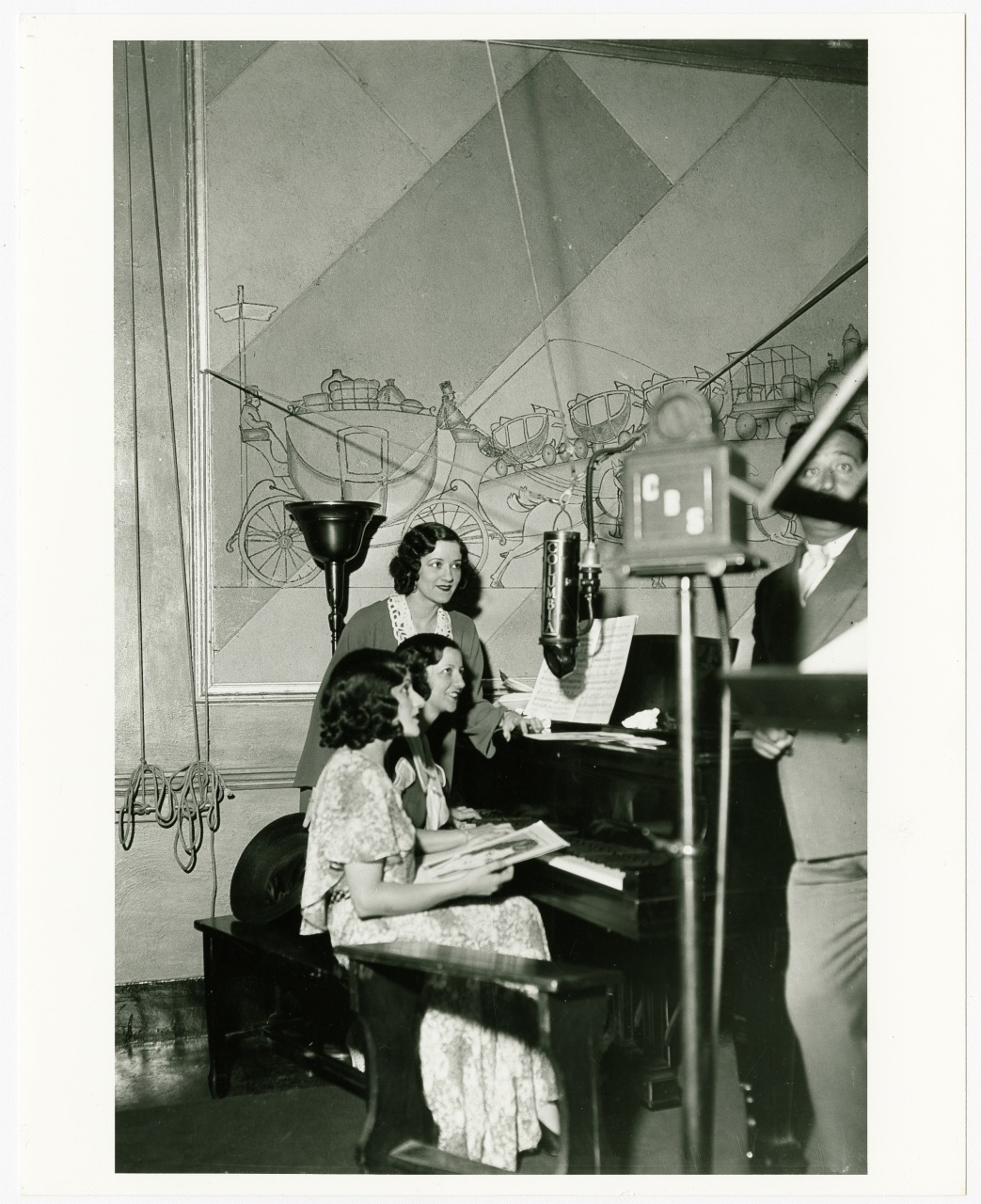
Boswell Sisters at the CBS radio studio
between 1930 and 1935; photoprint
The Historic New Orleans Collection, gift of the Boswell Museum of Music, 2011.0315.118
In 1929, following a stint doing vaudeville in Chicago, the Boswell Sisters sought a new challenge in the bright lights of Hollywood. In Los Angeles they landed their first contract with a national radio station, NBC, as well as work in the movie business, dubbing music for films. Their time in California also marked their first meeting with Harry Leedy, who became their manager as well as Connie’s husband.
Though they had appeared with Bing Crosby on CBS radio during their time in California, it was not until June 1931 that the Boswell Sisters earned a contract with CBS, moving over from NBC. The sisters performed on CBS radio and television broadcasts while continuing to record with Brunswick.
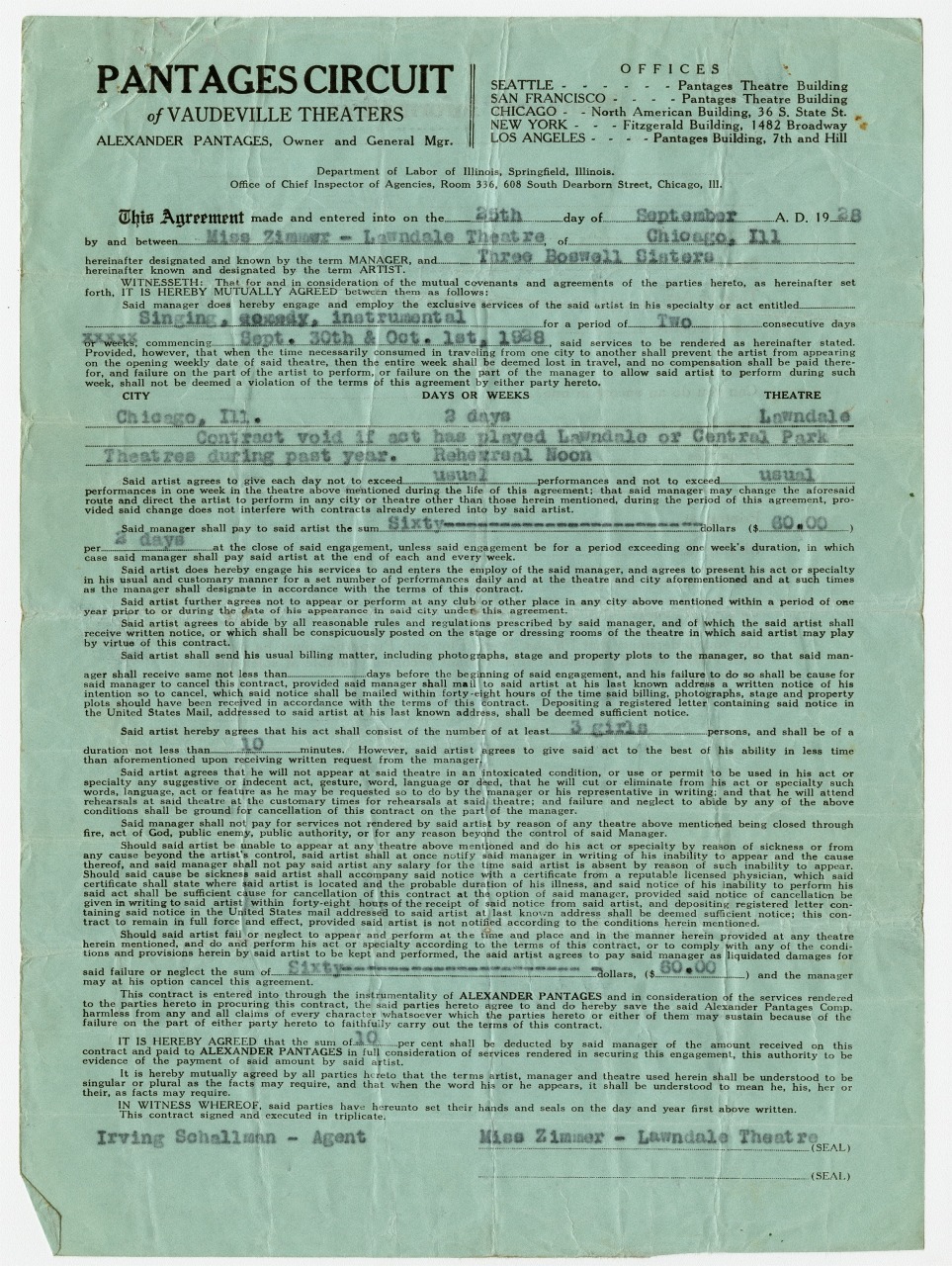
Contract with the Lawndale Theatre, Chicago
1928; document, typescript
The Historic New Orleans Collection, gift of the Boswell Museum of Music, 2011.0315.39
The girls’ father, A. C. Boswell, “didn’t believe too much in girls going out and working and traveling,” according to Connie. It wasn’t until 1928 that he relented, allowing the sisters to leave New Orleans for vaudeville work in Chicago. Among the variety-entertainment venues that hosted the Boswells during their time in the Windy City was the Lawndale Theatre, which opened in 1927 as a silent-film venue and was affiliated with the Pantages Circuit of Vaudeville Theatres.
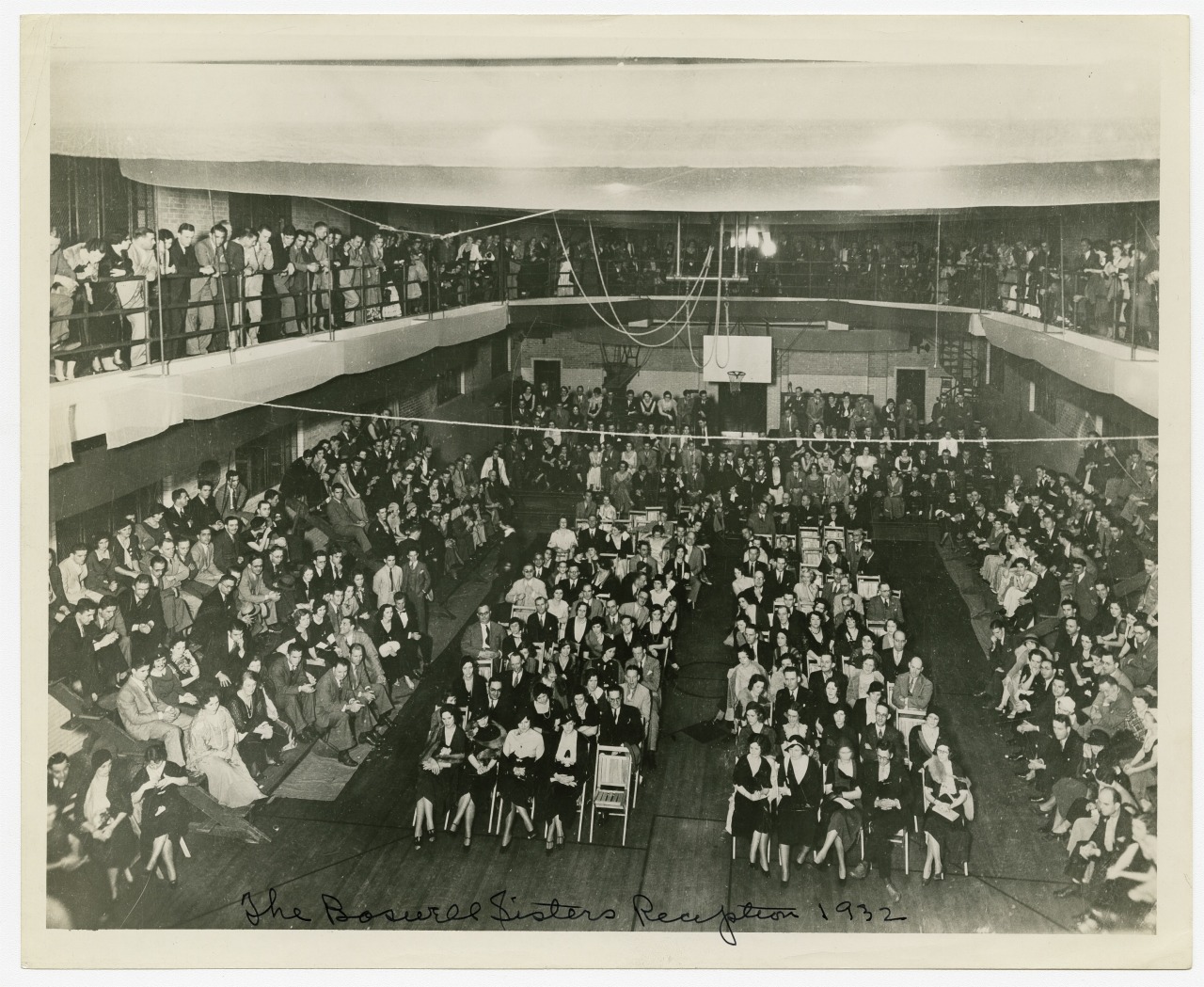
Boswell Sisters reception at the New Orleans Athletic Club [reproduction]
1932; photoprint
by Leon Trice, photographer
The Historic New Orleans Collection, gift of the Boswell Museum of Music, 2011.0315.102
William A. Coker was actively involved with the Young Men’s Gymnastic Club (which became the New Orleans Athletic Club in 1929), eventually becoming its director of promotions. Coker was also a proponent of cultural events in New Orleans, and he took an interest in the career of the Boswell Sisters. Along with John Parham Werlein of the music store Philip Werlein Ltd., he was instrumental in facilitating the sisters’ first recording, made in 1925 for Victor. In October 1932, after they had achieved national success, the Boswell Sisters were nearing the end of a two-week visit home to New Orleans, and Coker arranged for them to appear at a program hosted by the New Orleans Athletic Club. It was attended by local notables, including then-mayor T. Semmes Walmsley.
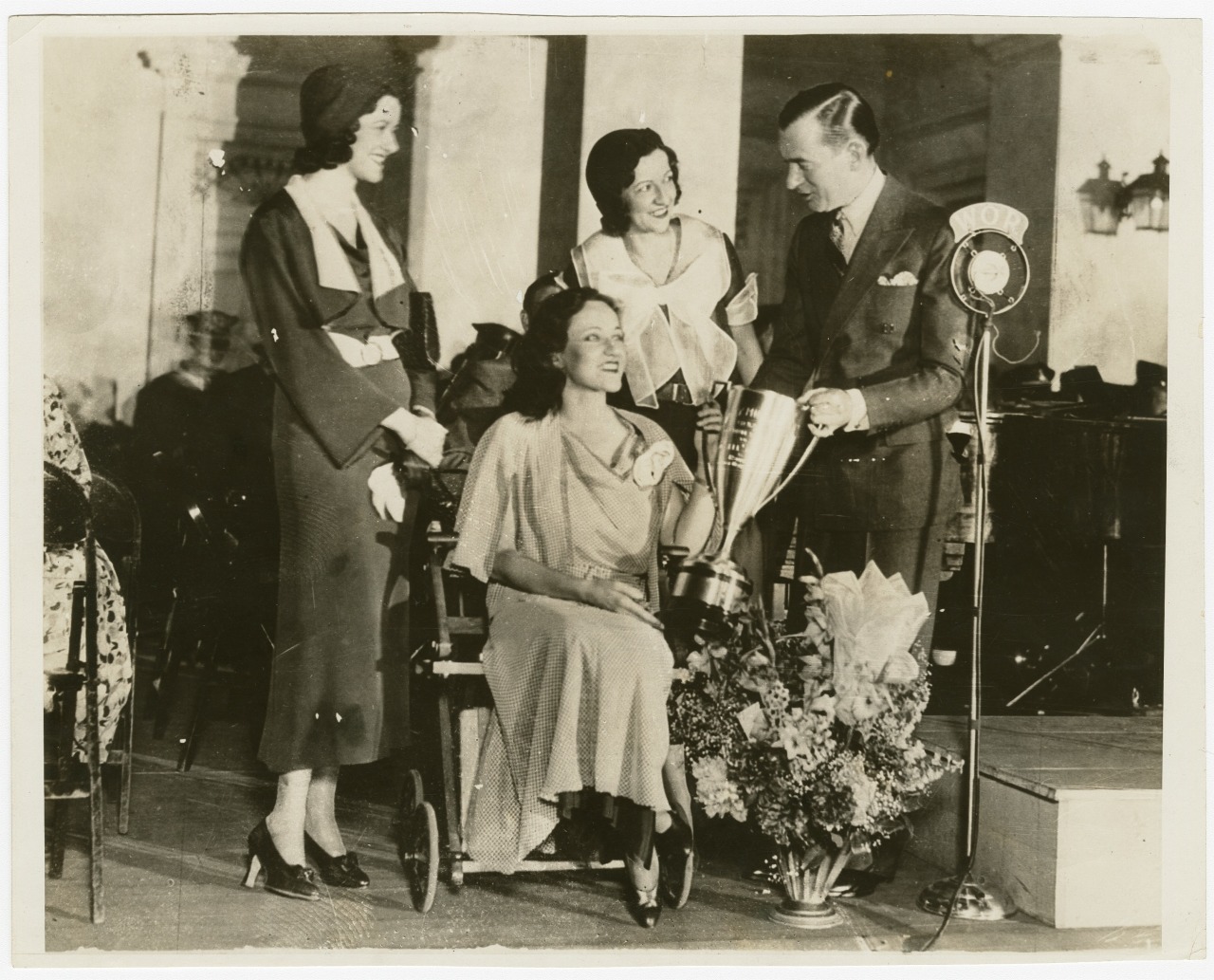
Boswell Sisters receiving New York Daily Mirror trophy
1932; photoprint
The Historic New Orleans Collection, gift of the Boswell Museum of Music, 2011.0315.101
In the spring and summer of 1932 the New York Daily Mirror ran a “Radio Popularity Contest,” printing ballots in the paper for fifty days before tallying the results. Radio columnist Nick Kenney announced the winners, which included Ruth Etting, Rudy Vallée and His Connecticut Yankees, Harry Richman, and the Boswell Sisters. At a July 13, 1932, presentation at the replica of Federal Hall in New York’s Bryant Park, the winners received silver loving cups from New York City Mayor James J. Walker.
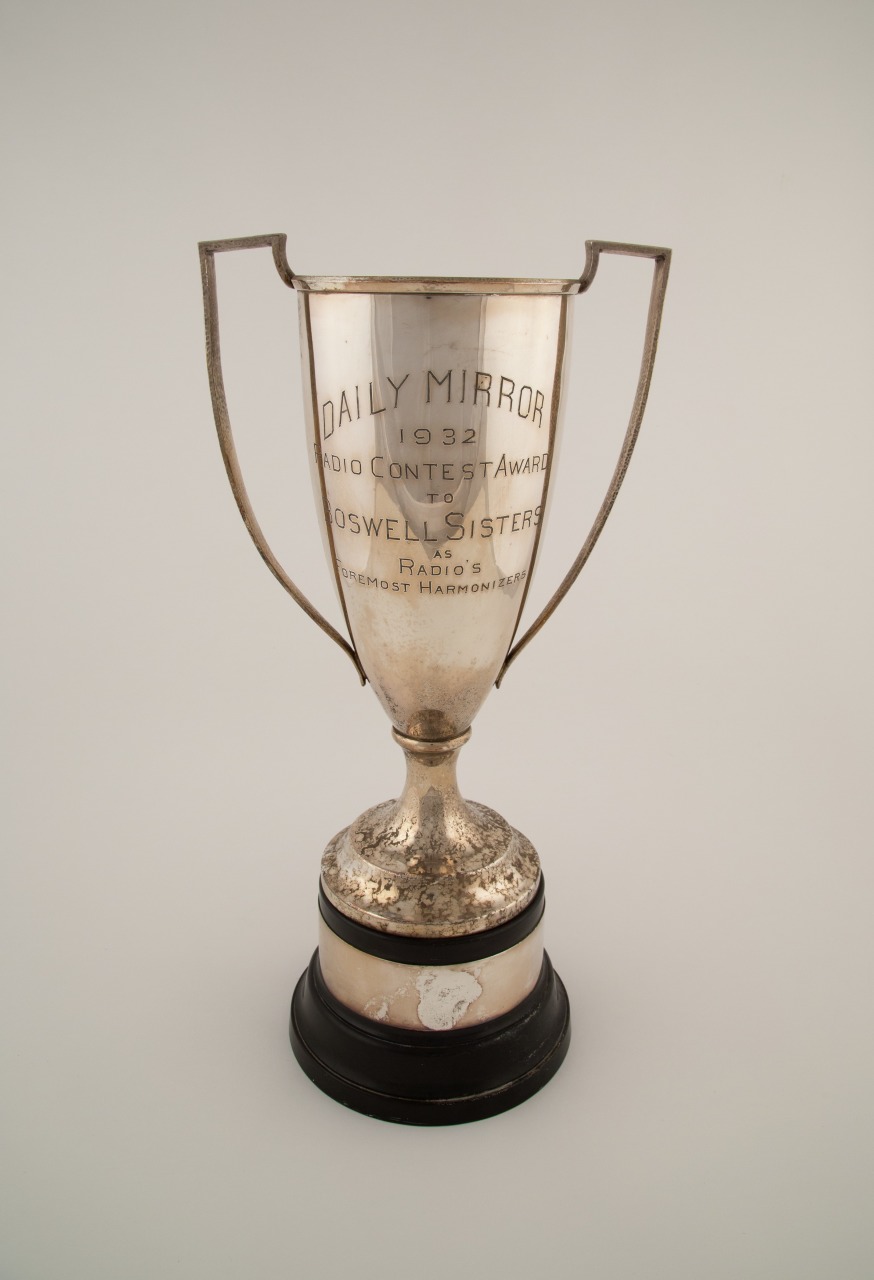
New York Daily Mirror trophy
1932
The Historic New Orleans Collection, gift of the Boswell Museum of Music, 2011.0315.120
